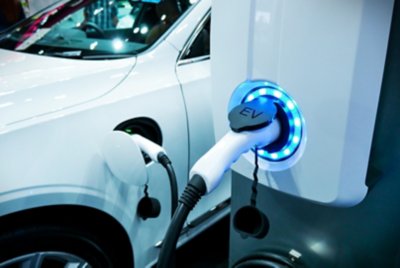Recommended For You
Batteries play an important role in modern society and in a future-ready economy, substantially changing the way we move, source power and communicate. As the global battery industry evolves, Europe stands well positioned to be a leading player in a rapidly-growing market.
While the market potential clearly exists, Europe has not made the most of it in the past, outsourcing important parts of the value chain to other regions of the world. At present, EU lithium-ion cell manufacturing represents less than three per cent of the global share.
Capitalising on the massive growth opportunity will require exploring the immense possibilities offered by the continent’s existing manufacturing operations, well-established supply chains and green innovation know-how.
Fostering this growth potential is one of many objectives we have at RECHARGE. As an industry association for advanced rechargeable and lithium battery technology, we seek to drive the industry forward in accelerating the transition to decarbonised mobility and energy generation, as well as support the EU’s 2050 climate-neutrality ambitions and leadership role in economic, technological and sustainability matters.
Through our policy and research work, we support a 360-degree value chain that can provide a strong foundation for the region’s long-term advancement in battery technology, extending from raw material production through to end-of-life management.
Playing to our Strengths
The first building block in Europe’s future industry leadership is a clear understanding of how the region’s socio-economic history and current rubric contributes to a solid base on which to build a robust and thriving ecosystem. Fortunately, Europe has a vast range of strengths on which to draw. These include:
Strong IP
European companies in the sector have given strong focus to investment and product development, which supports competitiveness on a global level.
Supportive legislative framework
Current regulations, both intra-nation and cross-continent, hold the industry to a high standard in areas such as human rights, sustainability, CSR and safety.
Diverse and highly-skilled market
Batteries are playing a significant role in sectors where the European economy has traditionally been strong, such as automotive and energy. These inherited skills have translated well into supporting the growth of battery manufacturing.
Established supply chains
Existing trade relations between European nations run deep, based on relative strengths in areas such as raw materials, production of parts and manufacturing of end-user products. Greater supply chain efficiency is inherent in trade between European nations due lower transport costs, and carbon emissions.
Forward-thinking governments and consumers that are placing importance on sustainability
Increasingly, consumers are demanding to know the origins of what they’re buying in order to ensure consistency with their own ethical and sustainable principles.
Powering the Continent’s Future
These characteristics are significant in that they draw on historic ties combined with contemporary trends in order to support growth. As global supply chains are likely to undergo significant change in the coming years, we have identified some specific opportunities to further strengthen Europe’s position and enhance its long-term potential. At RECHARGE, we focus on:
- Fostering innovation in key growth areas such as IoT, mobility and advanced communications. As global competition increases, it’s vital that funding is ringfenced and continually augmented to support R&D activities in order to ensure that Europe is able to lead from a technological perspective.
- Creating a level playing field for competing in the global market. We are currently working with EU legislators on a proposal for a revised Battery Directive (and related legislative files), which we believe is crucial in giving European manufacturers the framework on which to compete. Under the directive, manufacturers from outside of Europe will be held to the same standards as regional companies in areas like carbon emissions, end-of-life management and human, social and labour rights.
- Pushing leadership in sustainability and recycling. In order to maximise use of natural resources, it’s vital we take a broad perspective to consider the full lifecycle of battery products. By managing this evolution, we can ensure that materials with an environmental and strategic supply relevance are kept in the industrial cycle and are made available for the production of higher-performing, more efficient batteries that typically use less of these materials. Through these efficiency gains, we can improve the environmental profile of batteries, supported by a lower CO2 footprint due to factors such as lower reliance on fossil fuels for domestic energy, less transport and improved recycling.
- Demonstrating the level of importance given to ethical supply chains from raw materials to end of life. European consumers are becoming increasingly conscious of where the products they buy come from and are seeking greater transparency from producers. Being able to demonstrate that not only are the basic materials ethically sourced, but also that the production of the battery products are sound, therefore presents a significant market differentiator.
Leading the Way
By embracing such opportunities, European battery manufacturering can not only preserve its existing regional strength and sharpen its competitive advantages on a global level but take on a true leadership role into a more sustainable future. To realise this potential it’s essential we collaborate across the supply chain to capitalise on the continent’s deep knowledge and promising innovation potential.
We look forward to working with Rockwell Automation to help build and support this thriving ecosystem and contribute to the vision of making the world a more productive and sustainable place.
Published April 20, 2020


